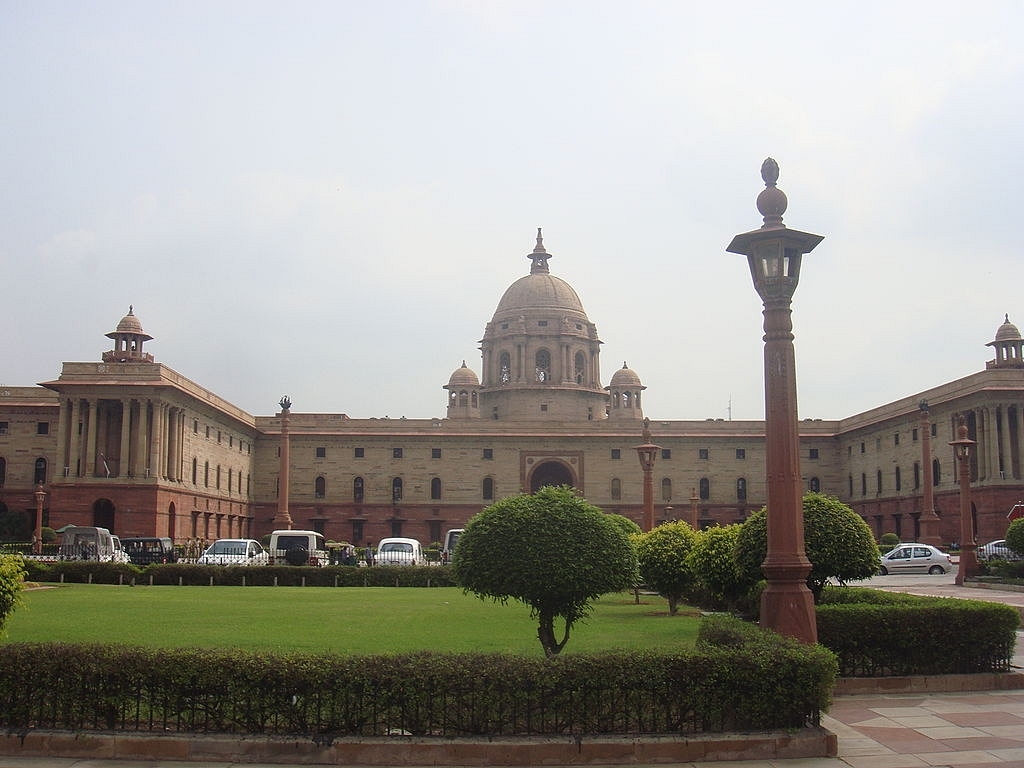Politics
Absent Intelligence

From the rarefied heights where Winston Churchill said only the written word will last to the world of professional spies is a sharp fall. But the two things come mingled to mind reading that A. S. Dulat, an ex-chief of the Research and Analysis Wing (RAW), will shortly be publishing his memoirs containing some controversial matters concerning his tenure with the former Prime Minister, A. B. Vajpayee. Those matters are best left for future discussions, if at all, but the core concerns of this writer lie elsewhere. Does espionage by career professionals really change the course of history, and does India produce first-rate spies, or rather, spymasters?
There is a telling conversation between Peter Guillam and George Smiley towards the finish of Smiley’s People where Smiley, the pariah of Circus, machinates and compels Karla, the Soviet head of espionage, to defect to the West. After Karla has crossed the bridge to the Western side and been taken in, the dialogue opens:
“George, you won,” said Guillam, as they walked slowly towards the car.
“Did I?” said Smiley. “Yes, well I suppose I did.”
The hesitation says it all. John le Carre who worked in MI-5 and MI-6 never did give the impression in his books that spying amounted to very much. He was writing in the twilight of the Empire and that perhaps embellished the pessimism. The little he wrote about his own work though suggested that it was not just very far from the cinematic flash and dance of James Bond but actually quite pointless. Not that same pointlessness but certainly an overarching cynicism came through as R. N. Kao, the founder of RAW, touched upon his spying days to this writer long ago. He still belonged to the old school that took the secrets of spying for country to the grave.
Dulat, of course, is more than a generation younger and joins others of his trade who have written about their work. Whether spies should pen memoirs is an old debate and goes back at least to the days of Peter Wright and Spycatcher and this writer is scarcely interested in returning to it. But to take up from where Smiley or rather le Carre left, is there any victory in spying? Did the spies win the Bangladesh War or the Indian military, and was there any sustaining victory after all the bloodshed? Questions without answers, or possibly answers that won’t be appreciated.
But as spies go, Kao failed to impress this writer. This goes against the grain and the mythologies that venerate the man. He was flat as a cardboard, one-dimensional, and had policeman written all over him. Barring Vikram Sood who this writer knows and respects for certain commissions that shall remain sub-rosa, most of the others encountered in the spy world carried that same police officer shallowness. Dulat seemed different though a single meeting of a few hours discussing Kashmir is thoroughly inadequate to gauge a professional. A friend from intelligence who arranged the conference and sat in was in awe of him. But coming away, this writer felt the military knew more about Kashmir at least at the time than the covert services. A notion also grew that Dulat became in the end a glorified messenger boy between New Delhi and Srinagar without having any strategic and structural understanding of the Kashmir issue.
Indians by and large don’t read widely or deeply. This deficiency is starkly apparent in the covert services. Whilst everything need not have a historical precedent, there are hidden gems which can always come in handy and assist in creative resolutions. In the Second World War, Britain encouraged all manner of talents in intelligence ranging from poets to brilliant mathematicians, classicists and linguists. The great universities of Oxford and Cambridge were fertile grounds for future agents. Spying is a creative game. As Smiley insinuated, there is no success in it in the real sense. But whilst at it, and whilst the country is spending large sums on espionage, it makes sense to induct talent into the services. Analysis, for example, has never been the forte of India’s covert services. To read some former intelligence specialists, especially one who is no more, is to be appalled and horrified at the mediocrity choking up the services.
If India has to be a Great Power, it must institute intelligence reforms. The stranglehold of the Indian Police Service on intelligence institutions must be loosened. Whilst there are no outright victories in secret wars, that is no reason to lose them.
Support Swarajya's 50 Ground Reports Project & Sponsor A Story
Every general election Swarajya does a 50 ground reports project.
Aimed only at serious readers and those who appreciate the nuances of political undercurrents, the project provides a sense of India's electoral landscape. As you know, these reports are produced after considerable investment of travel, time and effort on the ground.
This time too we've kicked off the project in style and have covered over 30 constituencies already. If you're someone who appreciates such work and have enjoyed our coverage please consider sponsoring a ground report for just Rs 2999 to Rs 19,999 - it goes a long way in helping us produce more quality reportage.
You can also back this project by becoming a subscriber for as little as Rs 999 - so do click on this links and choose a plan that suits you and back us.
Click below to contribute.
Latest